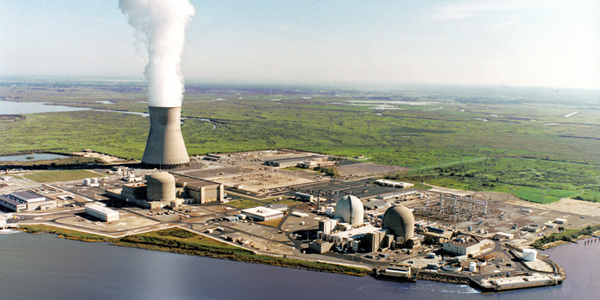By Rory D. Sweeney
Could PJM’s Artificial Island project get any more complicated? Apparently, yes.
A Delaware demand-side group has asked the PJM Board of Managers to again suspend the project because of announcements from Exelon and Public Service Enterprise Group that that they will cancel future capital investments at the two Salem nuclear units they co-own and shut the plants down if New Jersey doesn’t provide them $300 million annually in subsidies to keep the plants open. (See NJ Lawmakers Advance Latest Nuke Subsidy Bills.)
The project was developed to address transmission stability problems at the Hope Creek and Salem nuclear units in southern New Jersey and allow them to operate at full power without a book-size compilation of operating constraints.
PJM’s first competitive solicitation under Order 1000, the Artificial Island project has long been mired in controversy. In June, the RTO announced several cost allocation alternatives that would shift much of the $280 million price tag from Delaware ratepayers to those in New Jersey and Pennsylvania. (See PJM: AI Costs Would Shift to NJ, PA Under New Allocations.)
The Board of Managers had two months earlier restarted the project and ordered the analysis of alternative allocation methods. It also re-awarded the project to LS Power, which was selected when the board approved the project in July 2015. Complaints over mounting costs, scope changes and a cost allocation that Delaware felt was unduly burdensome caused the board to suspend it in August 2016.
But the announcements from Exelon and PSEG in February cast doubt over whether the plants are long for this world. PSEG said it might also cancel spending on the Hope Creek reactor, which shares Artificial Island with the Salem units.
“These actions call into question the long-term operational viability of the Salem and Hope Creek plants,” wrote Michael K. Messer, president of the Delaware Energy Users Group, noting that Delaware consumers stand to pay “a significant share” of the project’s cost. “The cost increase is at a level that will severely impair the competitiveness of Delaware businesses. This scenario becomes far worse should the driving reason for the transmission project, Salem and Hope Creek reliability, cease to exist.”
He asked the board to consider whether the project is necessary or if its scope changes if any or all of the plants close and whether the project’s timeline should be delayed “to minimize expenditures until a long-term commitment is established for the Salem and Hope Creek plants.” LS Power’s award has an in-service date of June 1, 2020.
PJM’s Dave Anders, who oversees stakeholder relations, said it’s unclear what the board’s response will be. “At this point, I do not have a sense for when/if there will be a formal response,” he said in an email.




